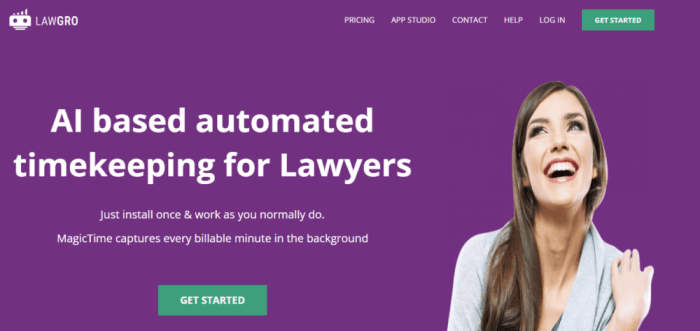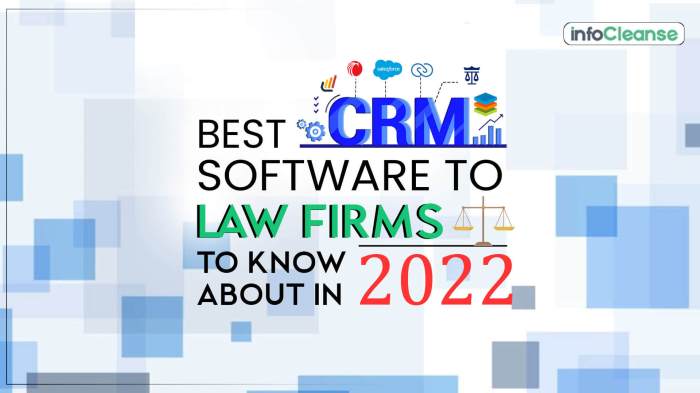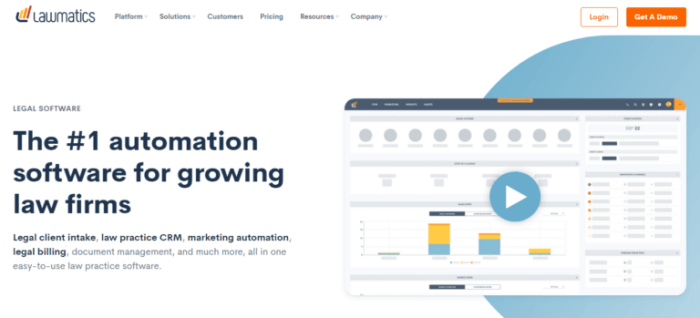In today’s competitive legal landscape, efficient client management is paramount. Law firm CRM software offers a powerful solution, streamlining operations and boosting productivity. This comprehensive guide delves into the intricacies of these systems, exploring their features, benefits, selection criteria, and implementation strategies. We’ll also address frequently asked questions and provide actionable advice to help you choose the perfect CRM for your law firm.
Understanding the Role of CRM in Law Firms
A Customer Relationship Management (CRM) system, specifically designed for law firms, goes beyond simple contact management. It acts as a central hub for all client-related information, automating tasks, improving communication, and ultimately enhancing client relationships. This translates to increased efficiency, better case management, and improved profitability.
Key Features of Law Firm CRM Software
- Contact Management: Centralized storage and management of client details, including contact information, communication history, and case details. This ensures everyone in the firm has access to the most up-to-date information.
- Case Management: Tracking case progress, deadlines, and associated documents. This feature often includes task assignment, progress monitoring, and automated reminders.
- Document Management: Secure storage and easy retrieval of crucial documents related to each case. This can include contracts, correspondence, and court filings.
- Communication Management: Integrated email, phone, and potentially even video conferencing capabilities, streamlining communication with clients and colleagues.
- Reporting and Analytics: Generating reports on key metrics such as caseload, revenue, and client satisfaction. This data-driven approach helps in strategic decision-making.
- Time Tracking and Billing: Accurately tracking billable hours and generating invoices. This is crucial for accurate financial management and client billing.
- Integration with other systems: Seamless integration with other software used in the law firm, such as accounting software, document management systems, and legal research platforms. This minimizes data duplication and streamlines workflows.
- Client Portal: Secure online access for clients to view case updates, documents, and communicate with their legal team. This improves transparency and enhances client experience.
- Marketing Automation: Some advanced systems offer marketing automation capabilities, allowing for targeted outreach to potential clients.
Benefits of Implementing Law Firm CRM Software
The advantages of adopting a law firm CRM extend beyond improved organization. They contribute significantly to the overall success and growth of the firm.
Improved Client Relationships
By centralizing client information and streamlining communication, CRMs foster stronger client relationships. Faster response times, personalized service, and proactive communication build trust and loyalty.
Enhanced Efficiency and Productivity
Automation of repetitive tasks, such as appointment scheduling and email marketing, frees up valuable time for lawyers and staff to focus on higher-value activities. This leads to increased productivity and profitability.
Better Case Management
CRMs provide a clear overview of all active cases, deadlines, and tasks. This ensures that nothing slips through the cracks, leading to better case outcomes and reduced risk of errors.

Source: webfx.com
Improved Financial Management
Accurate time tracking and billing features help in managing finances effectively. This ensures timely invoicing, reduces outstanding payments, and improves cash flow.
Data-Driven Decision Making
The reporting and analytics capabilities of CRMs provide valuable insights into firm performance. This data helps in identifying areas for improvement, optimizing strategies, and making informed decisions.
Choosing the Right Law Firm CRM Software
Selecting the appropriate CRM requires careful consideration of your firm’s specific needs and budget. Here are some key factors to consider:

Source: infocleanse.com
Scalability
Choose a system that can grow with your firm. Consider future needs and ensure the CRM can accommodate increased caseloads and user numbers.
Integration Capabilities, Law firm crm software
Assess the CRM’s ability to integrate with existing software, such as accounting software and document management systems. Seamless integration is crucial for optimal efficiency.
User-Friendliness
The system should be intuitive and easy to use for all staff members. Consider ease of navigation, training requirements, and overall user experience.

Source: webfx.com
Security and Compliance
Data security and compliance with legal regulations are paramount. Ensure the CRM offers robust security features and complies with relevant data privacy laws.
Cost and Pricing Models
Evaluate the pricing models offered by different vendors, considering factors such as upfront costs, subscription fees, and additional features.
Implementation and Training
Successful CRM implementation requires careful planning and execution. This includes data migration, user training, and ongoing support.
Data Migration
Transferring existing client data to the new CRM system requires careful planning to minimize disruption and ensure data accuracy.
User Training
Providing comprehensive training to all staff members is essential to ensure effective use of the CRM system. This includes hands-on training and ongoing support.
Ongoing Support
Choosing a vendor that offers reliable ongoing support and maintenance is crucial for addressing any issues or questions that may arise.
Frequently Asked Questions (FAQ)
- Q: What is the cost of law firm CRM software? A: The cost varies greatly depending on the features, scalability, and vendor. Expect a range from affordable monthly subscriptions to more substantial upfront investments for enterprise-level solutions.
- Q: How long does it take to implement a law firm CRM? A: Implementation time depends on the size of the firm, the complexity of the system, and the effectiveness of the implementation plan. It can range from a few weeks to several months.
- Q: What are the key performance indicators (KPIs) to track after CRM implementation? A: Key KPIs include client acquisition cost, case resolution time, client satisfaction, billable hours, and revenue generated per client.
- Q: Can I integrate my existing accounting software with a law firm CRM? A: Many CRMs offer integration capabilities with popular accounting software. Check the vendor’s specifications to ensure compatibility.
- Q: Is my data secure in a law firm CRM? A: Reputable CRM vendors prioritize data security and compliance with relevant regulations. Look for systems with robust security features such as encryption and access controls.
Conclusion
Investing in the right law firm CRM software is a strategic move that can significantly enhance efficiency, improve client relationships, and boost profitability. By carefully considering your firm’s specific needs and selecting a system with the appropriate features, you can unlock the full potential of your practice and achieve sustainable growth. Remember to prioritize user-friendliness, scalability, and robust security features when making your decision.
References
Call to Action
Ready to transform your law firm’s efficiency and client relationships? Contact us today for a free consultation to discuss your specific needs and explore the best CRM solution for your practice.
FAQs
What are the key features of law firm CRM software?
Key features typically include contact management, case management, document management, communication tools (email, calendar integration), reporting and analytics, and task automation.
How much does law firm CRM software cost?
Pricing varies widely depending on the features, scalability, and vendor. Expect a range from affordable monthly subscriptions to more substantial upfront investments for enterprise-level solutions. Many vendors offer free trials or demos.
How do I choose the right law firm CRM software?
Consider your firm’s size, specific needs, budget, and technological capabilities. Research different vendors, read reviews, and request demos to find the best fit. Prioritize ease of use and integration with existing systems.
What is the integration process like?
Integration varies depending on the software and existing systems. Some CRMs offer seamless integration with popular email clients, calendars, and other legal tech tools. Others may require more complex setup and potentially custom development.
What about data security and privacy?
Data security is paramount. Choose a vendor with robust security measures, including data encryption, access controls, and compliance with relevant data privacy regulations (e.g., GDPR, CCPA).
